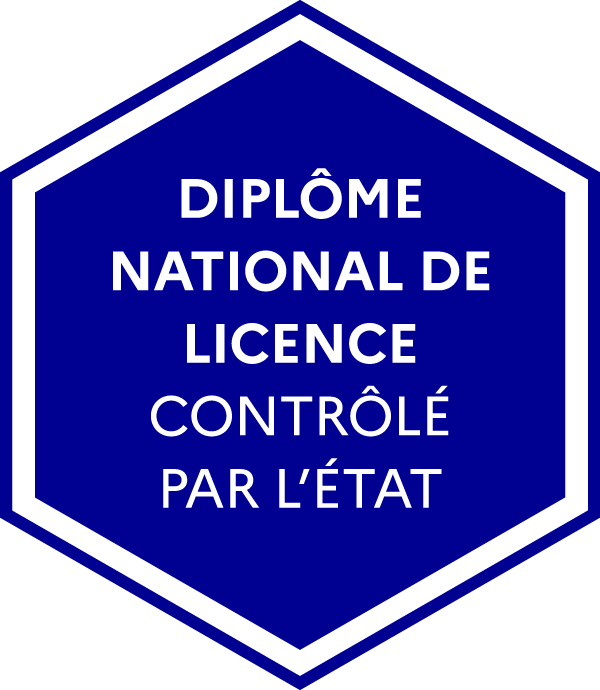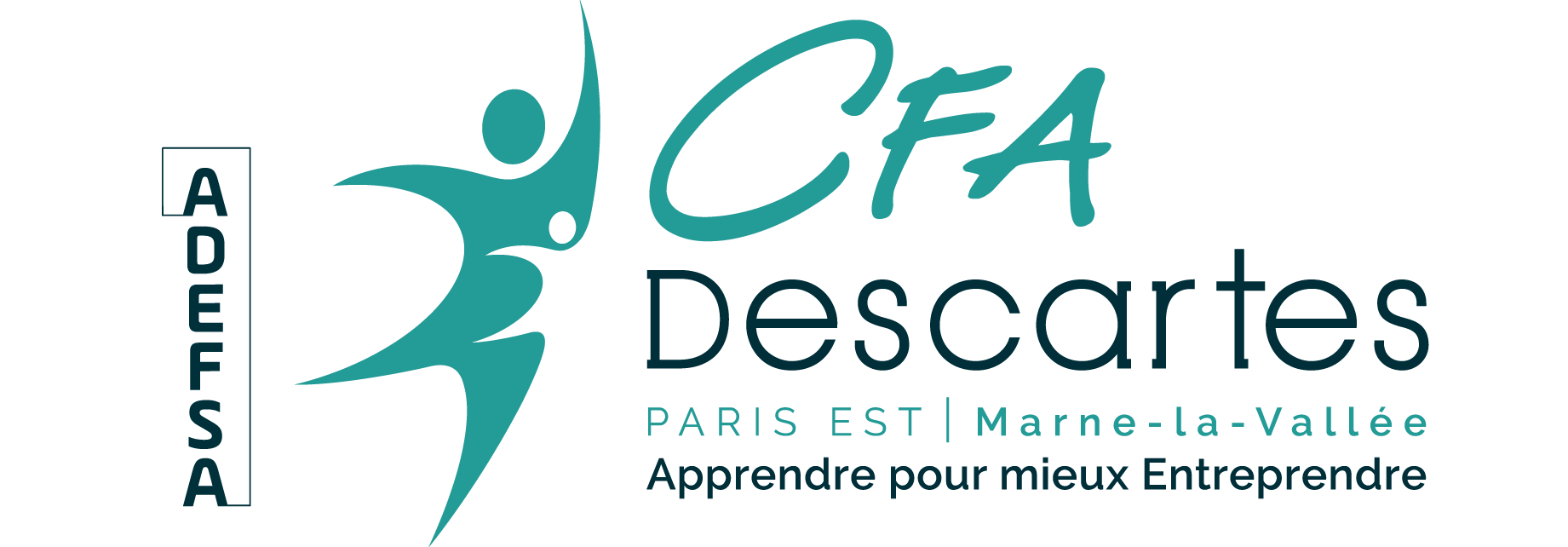Bachelor's degree Management, Service Engineering and Digital Technology


Entry requirements
To enrol in the Management, Service Engineering and Digital Technology Licence degree, students must have passed second year of a Licence, an advanced vocational training certificate, a technical university diploma or an equivalent qualification (120 ECTS) in economics-management, communication, IT, MMI, etc.
Recruitment is based on application and a motivation interview.
Benefits of the program
The third-year general Licence in Management, Service Engineering and Digital Technology combines management and digital services. It trains students for a wide range of professions related to information systems and the services of the future. The teaching methods of the Management, Service Innovation and Digital Technology Licenceprioritise practical experience and are mainly collaboration-based, with workshops, case studies and projects with professional partners.
Acquired skills
At the end of the year, graduates are able to use current management methods and techniques to prepare and implement decisions in the information systems sector. Complemented by the Management, Service Innovation and Digital Technology Master’s, which this Licence prepares students for, it helps build skills in the following areas:
- Designing and carrying out digital projects
- Managing digital projects
- Building cooperation between stakeholders
- Coordinating managerial and digital activities
- Working in a professional context and research environments
(Excerpt from the Management, Service Innovation and Digital Technology course skills reference framework)
International
The course encourages periods abroad through the university’s international programmes. Starting in third year of L3, students can start to prepare their period abroad in first year of the Master’s with a customised programme based on the skills targeted in M1.
Capacities
25
Course venue
Your future career
The Management, Service Engineering and Digital Technology Licence allows students to access positions as Assistant information system managers for digital projects, in liaison with IT teams, or in the field of digital communication (Assistant business-line project manager, Assistant service manager, Assistant front office manager, Marketing surveys officer, Assistant competitive intelligence manager, Assistant ITC sales engineer, Assistant support services manager (quality, back office etc.).
The Licence primarily prepares students for the Management, Service Innovation and Digital Technology Master’s, which opens doors to a wide range of professions related to the digital transformation of companies and service activities.
Professional integration
The Management, Service Engineering and Digital Technology Licence is a third-year general Licence course and prepares students for further study during a Master’s.
Within seven months of graduating from the Management, Service Innovation and Digital Technology Master’s, which is the natural next step from the Management, Service Engineering and Digital Technology Licence, 100% of students are employed in jobs corresponding to the targeted professions at negotiated salaries that are higher than average for Master's graduates.
The university-company work-study format is an integral part of the learning structure of the Management, Service Engineering and Digital Technology Licence and fosters the development of professional skills by allowing the definition of sound career objectives and a network of contacts. This partnership with the professional world is a springboard to employment. The course has been running since 1996 and boasts a strong alumni network.
Students who do not wish to pursue further study can apply for jobs at the end of the Licence as junior managers and digital project assistants.
Study objectives
To prepare students for professions in digital technology and information systems, the course has four main objectives based on the five skills targeted by the Management, Service Innovation and Digital Technology programme (from the preparatory Licence to the Master’s):
- Train students in the different aspects of management.
- Train students in digital technology.
- Introduce students to service innovation through concrete projects and allow them to enrol in the Management of Innovation Master’s programme.
- Allow students to apply acquired knowledge through a six-month project (in cumulative days) carried out in a company.
At the end of the work-study programme, which alternates between classes at the university and practical work in a company, students write and defend a professional and academic dissertation based on their experience in the company and backed up by the fundamental knowledge taught.
Major thematics of study
The main subjects taught cover two areas:
- Management: students acquire knowledge in the various disciplines of management, marketing, human resources and accounting, as well as an insight into innovation through projects, thus preparing them to continue their studies through the Management of Innovation Master’s.
- Information and communication technology: information systems, databases, web and network technology, SEO, monitoring and monitoring tools, analysis, service production and innovation.
English is taught in groups based on ability level.
Calendar
Term starts at the end of September.
Work-study programme: 1 week in a company / 1 week at the university.
As part of their dissertation preparation, students must find a company for the placement periods of their work-study programme by 20 December.
Semester 1
| Courses | ECTS | CM | TD | TP |
|---|---|---|---|---|
| MOBILISER LES EXPERTISES NUMERIQUES & MANAGERIALES | 11 | |||
|
41- Analyser les processus métiers et les usages numériques
Comprendre le fonctionnement global des organisations pour organiser et manager une équipe: poser un diagnostic et engager une action correctrice. L'UE propose une approche de l'organisation par les systèmes d'information. Elle met l'accent sur l'information mobilisée dans les processus métier, les technologies utilisés et l'organisation humaine qui les sous-tend. Cette UE insiste particulièrement sur l'information comptable et financière mobilisée dans les processus métier de l'entreprise (analyse des états financiers de l’entreprise, notion de valeur et de risque financier).
Teaching language FRANÇAIS / FRENCH | 6 | 35h | 35h | |
|
Comptabilité et finance d'entreprise
| 12.25h | 12.25h | ||
|
Diagnostic organisationnel et managérial
| 12.25h | 12.25h | ||
|
Système d'information et organisation
| ||||
|
42- MAILLER LES COMPOSANTES NUMERIQUES AU SEIN DES ORGANISATIONS
Comprendre et mobiliser les composants informatiques des systèmes d'information et plus particulièrement acquérir les bases nécessaires aux métiers d'assistance à maîtrise d'ouvrage ou du numérique sur les technologies internet, les réseaux et les bases de données. L'UE propose aussi une formation à des outils numériques pour accompagner les processus de pilotage et de communication
Teaching language FRANÇAIS / FRENCH | 5 | 43.75h | 43.75h | |
|
Technologies numériques support au pilotage et à la communivation Web
| ||||
|
Technologies Internet
| ||||
|
Réseaux
| ||||
|
Bases de données
| ||||
| AGIR EN SITUATION PROFESSIONNELLE & DE RECHERCHE | 19 | |||
|
51-ELABORER ET REALISER DES PROJETS INNOVANTS
Ce projet permet, autour de thématiques transverses aux licences MIPI & MITIC, de construire des solutions innovantes ancrées sur les réalités d'un territoire. A travers des rencontres avec des experts et des professionnels sur les innovations de services et territoires connectées, le BIM ou l’open data, les étudiants apprennent à travailler ensemble grâce à l’utilisation d'outils collaboratifs, de la communication numérique, de veille prospective pour imaginer avec les acteurs publics et privés des solutions qui puissent répondre aux besoins de l’écosystème.
Teaching language FRANÇAIS / FRENCH | 3 | 17.5h | ||
|
DIGIBAT PROJECT
| ||||
|
52- Problématiser, rechercher l'information, écrire et argumenter
| 13 | |||
|
Méthodo travail univ
| 1 | 7h | 7h | |
|
Méthodologie de recherche et du MUP
| 14h | |||
|
MUP, soutenance et séquence entreprise
| ||||
|
53- COLLABORER, S'AUTO EVALUER, PROGRESSER PAR DES FORMATIONS COMPLEMENTAIRES ET/OU D'OUVERTURE
Dans une perspective d'identification des compétences acquises en licence et en milieu professionnel, ces modules permettent soit la mise à niveau de compétences transverses, soit de développer l'esprit et les techniques de base de l'entrepreneuriat, soit d'adjoindre au cursus commun une partie relevant d'un choix individuel visant à compléter le portefeuille de compétences de l'étudiant.
Teaching language FRANÇAIS / FRENCH | 3 | 17.5h | ||
|
ECO OBLIGATOIRE
| 1 | |||
| CONCEVOIR & REALISER | 10 | |||
|
11- Cadrer un projet numérique
Définir le périmètre du projet et son cadrage en portant une attention particulière au contexte stratégique du projet et à la construction de relations négociées avec les acteurs. Conduire les différentes étapes d'un projet, de l'idée de départ à la mise en œuvre.
Teaching language FRANÇAIS / FRENCH | 3 | 12.25h | 12.25h | |
|
Les acteurs et les méthodes de gestion de projet (conduite et négociation)
| ||||
|
12- Innover et designer des services numériques
Sensibiliser à l'expérience utilisaeur et fournir un ensemble de méthodes de créativité et de design susceptibles d’être mobilisées dans le projet applicatif de L3.
Teaching language FRANÇAIS / FRENCH | 2 | 10.5h | 10.5h | |
|
Design de services
| ||||
|
14- Organiser la veille et la prospective
S'initier aux apports de l’intelligence économique dans un processus décisionnel et d’innovation avec une attention partucilière portée sur les sources d'informations, les causes et les traitements des vulnérabilités
Teaching language FRANÇAIS / FRENCH | 2 | 10.5h | 10.5h | |
|
Veille et outil de veille
| ||||
|
15- Bâtir la relation avec les clients et les utilisateurs
Aborder les différentes étapes du marketing (analyse du marché, marketing stratégique, marketing opérationnel) à travers des études de cas s'adaptant aux acquis en marketing de la classe.
Teaching language FRANÇAIS / FRENCH | 3 | 12.25h | 12.25h | |
|
Marketing, principes et outils
| 12.25h | 12.25h | ||
| PILOTER | 5 | |||
|
22- Appliquer une méthode et suivre les projets numériques
Comprendre le contrôle de gestion par l'analyse des coûts en structurant les données pour prendre des décisions de pilotage. S'appuyer sur des outils d'analyse de données descriptives et inferentielles pour faciliter les représentations par des tableaux et des graphiques. Comprendre la place et les enjeux des algorithmes dans les traitements des données
Teaching language FRANÇAIS / FRENCH | 5 | 24.5h | 24.5h | |
|
Comptabilité analytique et contrôle de gestion
| 12.25h | 12.25h | ||
|
Analyse des données : Statistiques et mobilisation des algorithmes
| ||||
| COOPERER | 15 | |||
|
31- Manager les équipes et conduire le changement
Acquérir les notions de base en droit du travai à partir notamment d'exercices autour de la fiche d'arrêt et de cas. Comprendre la fonction GRH et prendre en compte les compétences dans la gestion des carrières et la mobilité. Aborder la motivation la culture d'entreprise et l'interculturel pour développer les bases du management d'une équipe.
Teaching language FRANÇAIS / FRENCH | 5 | 24.5h | 24.5h | |
|
Droit du travail
| 14h | 14h | ||
|
RH et diagnostic organisationnel
| 10.5h | 10.5h | ||
|
32- Communiquer en interne & en externe
Améliorer sa communication orale et écrite notamment professionnelle sur la base de mises en situation de communication (argumenter, convaincre, négocier, attirer l’attention, susciter et nourrir l’intérêt, …). Mettre en place une communication sur le web (sites et réseaux sociaux) en mobilisant le SEO pour en améliorer la performance
Teaching language FRANÇAIS / FRENCH | 7 | 26.25h | 26.25h | |
|
Communication et Expression
| ||||
|
Communication WEB
| ||||
|
SEO
| ||||
|
33- Manager dans un contexte international et multiculturel
Consolider et à parfaire les 4 compétences de communication : réception et production orales et écrites des étudiants en anglais général et dans leur domaine de spécialité.
Teaching language ANGLAIS / ENGLISH | 3 | 42h | ||
|
Business English
|
Asmaa HENNI
Sylvie FRAPPESAUCE
Isabelle LE GOUILL
Partners

Le conseil de perfectionnement regroupe des universitaires et des professionnels actifs dans les grandes entreprises du secteur, des organisations professionnelles, des associations professionnelles. Le conseil accompagne les 3 années de formation MITIC et offre un gage d'adéquation entre les enseignements des parcours MITIC et les besoins professionnels. Son existence remonte à la création du parcours MITIC en 1996.

